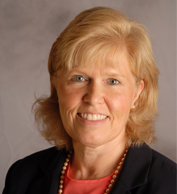FAITH + IDEAS =: last updated 02/28/2011
By Priscilla Nelson
I loved Dr. Seuss’s books as a child and I love them more as an adult. In fact, I think it’s safe to say that Dr. Seuss has had a profound effect on my life. As a kid, I was tickled by the very sound of, Say! I like green eggs and ham! I do! I like them, Sam – I – am! The melodic rhyming and the silly stories made me love language. They made me want to read. Still do.
Little wonder, then, that March 2—what would have been Theodore Seuss Geisel’s 107th birthday—has been designated national Read Across America day. The annual celebration (sponsored by the National Education Association and Random House Publishing) is the nation’s largest reading event with a wonderfully ambitious goal: seeing every child reading in the company of a caring adult to celebrate Dr. Seuss’s birthday. The purpose, of course, is to motivate children—like me—to read, and in the process, to fall in love with reading.
I can’t imagine what my childhood would have been like without Dr. Seuss’s books; consequently, my adult zeal for his books is linked now to my passion for teaching children to read. Green Eggs and Ham, for instance, is one of those books that can be “read” on different levels. While the benefits of reading aloud any book to children are many, the sounds of the words, rhymes and entertaining storyline in books such as Green Eggs and Ham have a particular appeal.
But there’s more to that appeal than it might seem. Reading text with rhyme not only builds background knowledge, vocabulary, and familiarity with language, it helps children attend to smaller units of language. And attention to the smallest element of language builds a critical foundation for success in reading, which translates into success in every area.
Consider, then, how developing a child’s ability to hear rhyming, alliteration, and syllabication can lay a solid foundation for attending to sound, and ultimately, reading. Each syllable can be broken down into smaller units, a process that goes like this: The smallest unit of sound—called a phoneme—when blended together creates words. In the word cat, for example, there are three phonemes: /k/ /?/ /t/. These letters can be confusing to a mature reader. But this is about sound, not print, and every letter has a name and a sound. The name and sound are not usually the same. So reading teachers often use speech marks / / to denote the sound of the letter. For example, /k/ is used to denote the first sound in cat. We can’t use /c/ because the letter c has more than one sound (city, cat). But by changing one phoneme in cat, such as changing /k/ to /p/, we change the word cat to pat. New word, new meaning.
When a new reader is able to blend phonemes, it ensures overall reading skills. Familiar sounds create new words, phonemes are broken apart, and spelling skills grow by focusing on each sound when matching letters to sounds. So when new readers are able to move phonemes around, they can read and spell new words not previously encountered. This is decoding, reading at its most basic level.
Dr. Seuss’s books were among the first I decoded as a child. The more I read, the more my life changed especially when I became the one reading to my dad. From Dr. Seuss to Louisa May Alcott to my current diet of research journals and young adult fiction, my confidence as a reader began unknowingly and playfully by developing my awareness of phonemes. There is power in those itty-bitty phonemes that Dr. Seuss so creatively used to engage children, sheer power in phrases like: And I would eat them in a boat. And I would eat them with a goat. . . So I will eat them in a box. And I will eat them with a fox.
We might not eat books with a fox, or even in a box, but if we—and our children—are to become the people we were created to be, we need to read. Like maps, reading enriches life’s journey; it provides entry points to a rapidly increasing body of knowledge.
That might be why a principal friend of mine at the end of each school year honors the first graders in her school and publicly congratulates them on achieving what she calls the most life changing skill they will ever attain. The student body applauds the accomplishment of those first graders because they, too, know how valuable good reading skills are. Skills that often start with silly rhymes, sounds and stories.
To this day, I wonder if my affinity for Green Eggs and Ham influenced the naming of my first born . . . Sam. It was one of the first books he and I read together.
Dr. Priscilla Nelson is associate professor of education at Gordon College in Wenham, MA. She and her family live in Lynn, MA. (Click here for more information on Read Across America).
